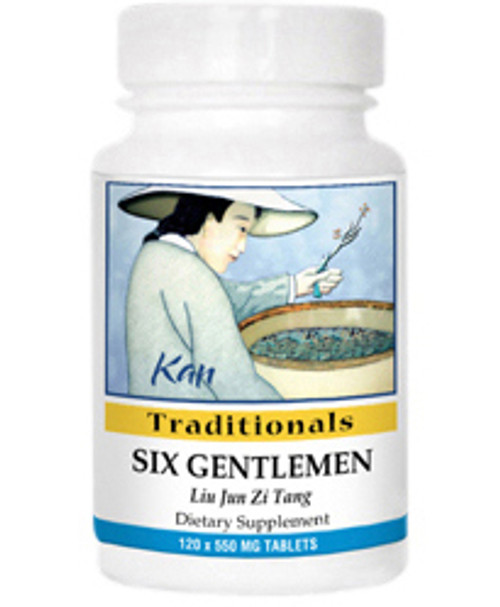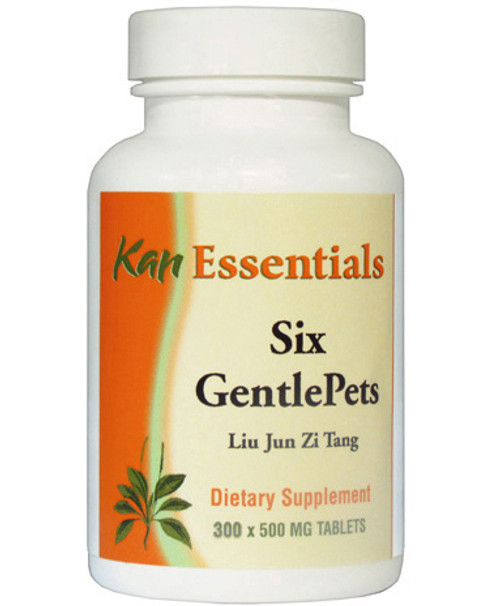
Product Description
Six Gentlemen (300 tablets)
| Unit Size | 300 |
| Dosage | 2-3 tablets, 2-3 times per day |
| Potency | 7:1 |
| Properties | Provides relief for a wide range of gastrointestinal disorders |
| Contraindications | Discontinue during the early phase of a Wind invasion |
| Chinese Symptomology | Decreased appetite. Pale complexion. Weak limbs. Focal distension. Nausea or vomiting. Stifling sensation in the chest or abdomen. Chronic production of phelgm that is thin and white. Diarrhea. |
| Actions | Supplements the Spleen and Stomach Qi, resolves Phlegm Damp, descends rebellious Stomach Qi |
| Pattern | Spleen Qi deficiency with Phlegm Damp accumulation, stagnation of Phlegm, food and Qi |
| Tongue | Pale with teethmarks, white thick and possibly greasy coat |
| Pulse | Soggy, weak, thin |
| Chinese name | Liu Jun Zi Tang |
| English name | Six Gentlemen |
Description
Six Gentlemen is a famous formula and one of the most frequently used Spleen tonics in the Chinese Herbal pharmacopeia. It is indicated for a patient with marked Spleen/Stomach Qi vacuity. It supplements both the Lung and Spleen Qi and resolves Dampness and Phlegm. The Spleen governs the transformation and transportation of Nutritive/Constructive Qi that is produced from foods and fluids. When Qi transformation is impaired, the clear Yang fails to distribute Constructive Qi to the body and the turbid Yin accumulates without being discharged. This leads to abdominal distention, loss of appetite and nausea and/or vomiting. According to five-phase theory, Earth generates Metal. Therefore, when Spleen Qi is depleted, Dampness will accumulate, congeal into Phlegm and rise to the Lungs causing stagnation in the chest. This prescription strengthens the Spleen and Stomach, transforms Phlegm and stops vomiting. Six Gentlemen is a combination of both Si Jun Zi Tang and Er Chen Tang and, thus, has a wider clinical application in a modern practice than either formula used separately.*
Ingredients
Dang shen - Codonopsis root
Bai zhu - White atractylodes rhizome
Jiang ban xia - Ginger cured pinellia rhizome
Chen pi - Tangerine dried rind of mature fruit
Fu ling - Poria
Zhi gan cao - Honey fried Chinese licorice root & rhizome











